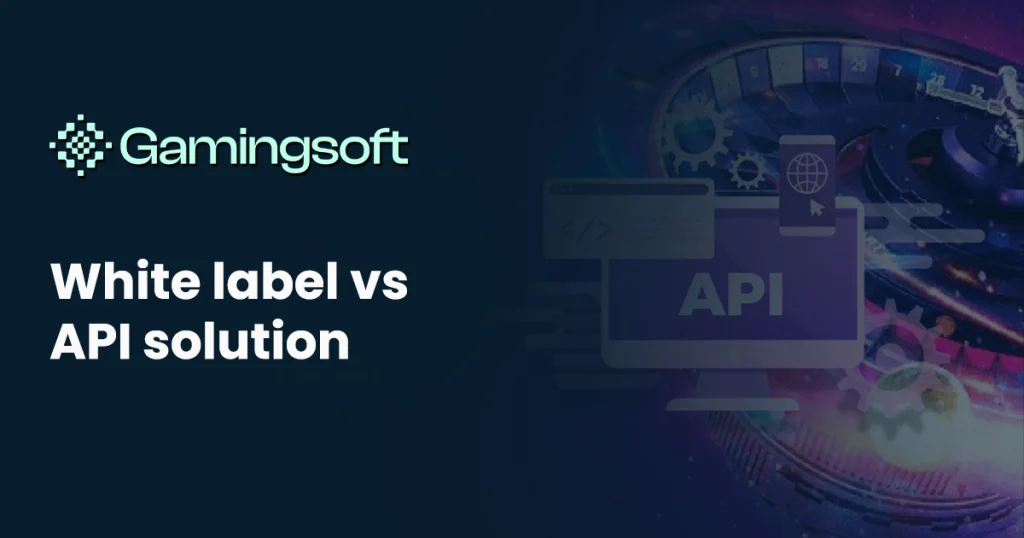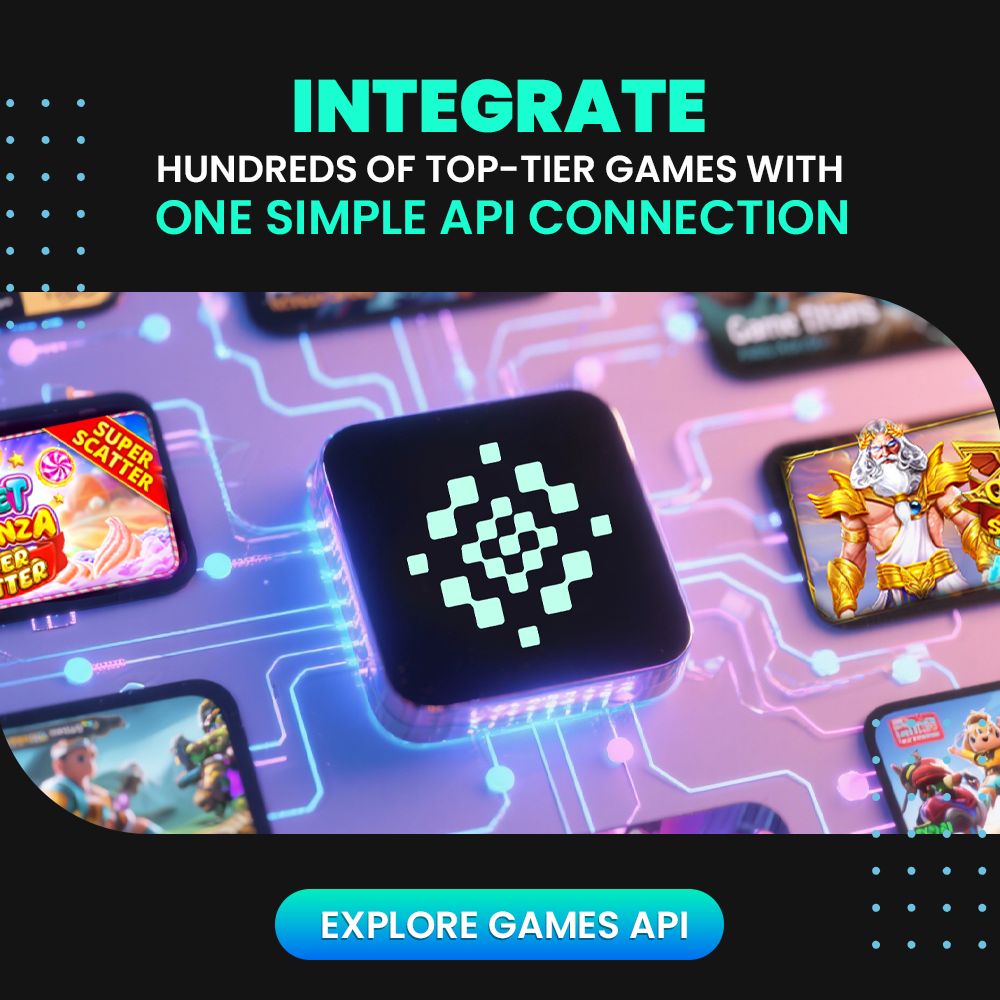Launching an iGaming platform involves more than design and game selection. The foundation of your success depends on the solution you choose — and the two most popular options are White Label and API Integration.
Both models let you enter the market quickly, but the level of control, cost, and flexibility can vary dramatically. A White Label solution gives you a ready-made casino system, while an API integration allows you to connect individual components into your existing infrastructure.
Knowing which model fits your business goals can make the difference between a fast launch and long-term scalability. Let’s break down how each one works — and which offers the best balance of freedom, speed, and stability for your iGaming operation.
Understanding White Label and API Solutions in iGaming
A White Label solution is a complete, pre-built platform that includes everything from licensing to payment gateways and game content. It’s designed for operators who want to launch quickly without managing technical backends or compliance complexities.
You handle the brand and marketing, while your provider manages operations behind the scenes.
On the other hand, an API Solution offers more flexibility. It lets you integrate games, wallets, and payment systems into your own platform. You keep full control over the user experience, website architecture, and data. But with that freedom comes more responsibility — including hosting, support, and compliance management.
Choosing between white label vs API solution comes down to priorities. If speed and simplicity matter most, White Label is the practical route. But if you already have infrastructure and want to customize deeply, API integration gives you the agility to build your ecosystem from the ground up.
As explored in “White Label and Turnkey Casino: The Perfect Software and Business Solutions“, understanding your operational needs helps align the right model with your growth stage — whether you’re launching your first brand or scaling a multi-market network.
Pros & Cons of White Label Solution
Using a White Label solution has many advantages:
- Payment processing solutions: You get access to trusted payment providers who support both local and international payment methods.
- Risk Management and anti-fraud: All security systems come built-in.
- 24/7 support: Depending on your plan, you get multi-lingual B2B and even B2C support teams.
Being a full-service prebuilt solution, the main disadvantage of using a White Label solution is the higher cost compared to just an API solution. However, taking into consideration how much time and effort you save, the price is very often quite worth it.
To conclude, a White Label solution is ideal for operators who want to pay more attention to the marketing and branding side of the business, hence giving the full management of the technical side to their software provider, relying on them.
Pros and Cons of API Integration
Let’s have a look at the API integration’s advantages and drawbacks. Here are the main advantages of this option:
1. Ease of integration
API is a component that allows different platforms, applications, and systems to connect and share information. For instance, certain software can be used inside one another or can be connected with different tools to streamline certain processes.
2. Improved services
APIs simplify the implementation of new applications, business models, and digital products. It allows effective complementation with third-party products or services while improving their development. For that reason, many developers and entrepreneurs are willing to pay for this solution.
3. Innovative
As you are building your own platform based around software API, you have the flexibility to create and develop innovative business models. They can be developed faster. Thanks to automation and integration of processes, your business can save money, time, and effort.

Comparing White Label vs API Solution — Key Differences That Matter
While both models help you launch an iGaming platform, they serve very different goals. Choosing the right one depends on how much control and customization you need — and how much responsibility you’re ready to handle.
1. Control and Customization
White Label solutions simplify everything. You get a ready-to-run casino that’s already licensed, tested, and connected to game providers. The trade-off is limited creative control — layouts, payment flow, and backend settings often follow the provider’s structure.
API integrations give you freedom. You can build your own interface, manage data, and integrate third-party systems. However, it requires a strong technical team to maintain stability and compliance.
If your brand strategy revolves around unique experiences, API is better. But if you want a stable start without infrastructure headaches, White Label wins for simplicity.
You can explore this further in “Maximizing Profitability: A Guide to White Label Casinos“, which explains how managed solutions can balance cost and control effectively.
2. Scalability and Integration Speed
Speed matters — especially when entering new markets.
White Label solutions are plug-and-play; they let you go live within weeks. It’s ideal for startups or investors testing market potential.
API integration takes more time but scales better. Once built, your system can expand to include new games, payment options, and markets with minimal vendor dependency.
“GamingSoft’s API Aggregator: Your Gateway to Seamless iGaming Integration” showcases how scalable API infrastructures can connect hundreds of game providers under one unified system.
Data from Gaming Innovation Group’s 2020 Report shows that operators using modular APIs grow 28% faster year-over-year than those relying on closed white-label systems.
3. Compliance and Maintenance
White Label platforms usually come pre-licensed, meaning the provider handles KYC, AML, and regulatory paperwork. This removes a huge burden for new entrants.
In contrast, API users must secure licenses independently, ensuring all data-handling practices meet jurisdictional rules.
White Label reduces risk but limits adaptability. API offers flexibility but demands compliance expertise.
Choosing the right model means balancing these factors against your long-term vision.
How to know which one is suitable for you?
Now that we have gone through the pros and cons of each solution, let’s see what else you need for your iGaming operation and how to choose the best option.
First, you should determine your business goals by answering a few basic questions, such as:
- Are you looking for a quick, ready-to-use solution?
- What is your preference — sportsbook, casino, slots, or others?
- Do you already have a target market?
Once you have an approximate picture after answering these questions, you can decide which solution is suitable for you. Do keep in mind that customization and quick integration are the keys to success: the more configurable the system is, the more flexible it will be to suit your needs.
The iGaming industry is one of the most profitable in recent years, and yet very risky and time-consuming. It takes a lot of time to do research, find loyal partners and a smart team, execute marketing and build a reputation.
The road to success is challenging — but with a loyal and professional partner, it’s way easier for you to overcome the hardships.
Integrating Both Models — When Hybrid Solutions Make Sense
In practice, many successful operators don’t choose between White Label or API — they use both.
A hybrid setup lets you enjoy the best of both worlds: fast market entry with White Label, plus API-driven scalability when your brand matures.
For example, new brands might start with a White Label to test markets and build player trust under an existing license. Once the business stabilizes, they can shift key operations — such as game management, wallet integration, or CRM analytics — through APIs.
This transition gives you full control while keeping the foundation secure and compliant.
Hybrid frameworks are now a trend across iGaming. Reports from Gaming Innovation Group show that multi-model operators outperform single-solution casinos in adaptability and revenue resilience.
Flexibility isn’t just a technical feature — it’s a business advantage.
Power Your Growth with GamingSoft’s White Label and API Ecosystem
At GamingSoft, flexibility and performance work hand in hand. Our White Label Solution offers a turnkey casino system — complete with licensing, payment gateways, and 24/7 support — so you can focus on building your brand and acquiring players.
When you’re ready to expand, GamingSoft Game API gives you the freedom to connect hundreds of providers with one integration. Meanwhile, GS Intelligent B2B White Label enhances your platform with AI analytics, real-time monitoring, and multi-market compliance — all in one secure ecosystem.
Whether you’re entering the industry or scaling globally, GamingSoft provides the technology and partnership to grow sustainably. Because success in iGaming isn’t just about launching — it’s about staying ahead.
Conclusion
Choosing between White Label and API isn’t a competition — it’s a strategic alignment. White Label gives you speed. API gives you control. Together, they build a foundation that adapts as your business evolves.
The best solution depends on your goals, resources, and growth stage. If agility, data, and long-term scalability matter most, choose a partner that delivers all three — with the experience to help you navigate the fast-changing iGaming landscape.
With the right partner, technology becomes more than infrastructure. It becomes your competitive edge.





